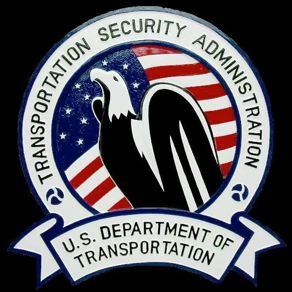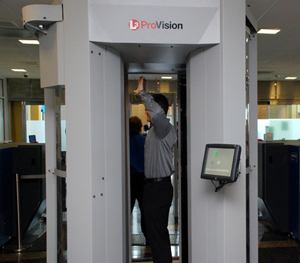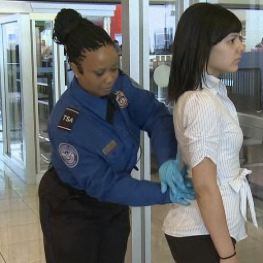 As we look toward the new year, it’s also time to look back at some of the notable news of 2010.
As we look toward the new year, it’s also time to look back at some of the notable news of 2010.
Tech and gadget guy Phil Baker sees 2010 as the year when citizens faced serious privacy invasions, from online services to smartphones to the TSA.
Read on for his reflections of the past year.
When we look back at 2010, it will be remembered as a year in which we continued to lose our privacy at an astonishing rate.
Facebook notoriously released its members’ private information for anyone to see and permitted advertisers to access information that it promised to would be private.
 It was the year that Google collected our personal information, including email, passwords, and files, and using their cars that roam neighborhoods photographing our homes for its Street View application.
It was the year that Google collected our personal information, including email, passwords, and files, and using their cars that roam neighborhoods photographing our homes for its Street View application.
Google’s CEO, Eric Schmidt, dismissed these complaints, saying if you don’t like Google Street View photographing your houses you “can just move,” and “if you have something that you don’t want anyone to know, maybe you shouldn’t be doing it in the first place.”
Yet, in comparison to other companies that amass and market our personal data, these two are more responsive to public criticism. They both have public images to maintain and both claim to have taken corrective action to prevent these events from recurring.
The problem is that no company can ensure it won’t happen again, not when a single employee or a computer hacker anywhere in the world can create havoc. Or when unscrupulous companies comb all of this public information and resell it to others.
Check out the official Peter Greenberg Facebook page.
 So today, if you go onto the Internet, write email, sign up on various sites, get a shopper’s card, or even use a smartphone, expect the information to become public and to be sold to unscrupulous sites with no codes of ethics.
So today, if you go onto the Internet, write email, sign up on various sites, get a shopper’s card, or even use a smartphone, expect the information to become public and to be sold to unscrupulous sites with no codes of ethics.
They’ll know what you eat, what Web sites you visit, what books and movies you consume and what medications you buy.
Apps on your smartphone can access your contacts, track your movements, and might even check your daily calendar. Others can learn when you travel out of town, what hotels you stay at and what companies you are meeting with.
In fact, I spoke with one person who runs a successful business that offers a service that mines public information on Facebook and LinkedIn to track the sales personnel of her clients’ competitors so they can compete more effectively.
We can’t blame these companies alone.
We’re all guilty of sharing this information to get something in return. We post information on social sites to make business contacts and promote ourselves. We use Google Maps on our cell phones to get traffic information in return for letting Google to track us. We use supermarket loyalty cards to get discounts, allowing them to know what we buy.
Is there any relief in sight? Several government agencies, including the FCC, are investigating and proposing a Do Not Track Registry, much like the Do Not Call Registry. And we know how effective that’s been!
But I wouldn’t look to the government for help, since government agencies are committing some of the most egregious invasive activities in the name of protecting us from terrorists. As we all know by now, a San Diego resident, John Tyner, made national news for refusing to submit to TSA’s new “privacy-invading, genital-picture-taking, radiation-delivering back-scatter imaging machines,” as Jeffrey Goldberg of The Atlantic aptly describes it.
Learn more: TSA’s Virtual Stripsearches: X-Rated Pat Downs Fuel Privacy Backlash
 Tyner refused the alternative, a personal full-body pat down that including touching his personal parts, saying, “If you touch my junk, I’m gonna have you arrested.”
Tyner refused the alternative, a personal full-body pat down that including touching his personal parts, saying, “If you touch my junk, I’m gonna have you arrested.”
So his choice was either to subject himself to revealing X-rays or be groped. Tyner decided to leave the airport, unable to board his flight. He then posted a cell phone audio recording of his half-hour encounter in Terminal 2.
That recording has become viral and has aroused a huge protest among travelers and airline employees.
And in what can only be described as a really dumb move, San Diego TSA director Michael Aguilar called a press conference to threaten Tyner with an $11,000 fine for leaving the airport without completing the screening. Yes, this is the way to demonstrate TSA’s competency.
TSA’s defense of these machines has been simplistic without any serious discussion: that body scans and pat-downs make flying safer. But there’s significant evidence from other governments and security experts that these scanners are not as effective, nor as safe, as they claim.
And while they say the images are immediately destroyed, the U.S. Marshals operating a similar scanner in the Orlando, Florida, courthouse saved images of full-body scans that have recently appeared on the web.
Learn more about this: TSA Privacy Backlash Grows With Release of Body Scan Images
The TSA has also failed to anticipate and address the intrusive pat downs of breast-cancer survivors with mastectomies, and toddlers that have been taught not to allow anyone to touch them.
TSA has gone too far. They’re just putting on a display to make us feel safer by displaying more of us.
 They’re using expensive technology while ignoring simpler, safer, and more common sense approaches. That really raises questions about their claims about keeping us as safe as possible. This is not an agency that’s earned our confidence.
They’re using expensive technology while ignoring simpler, safer, and more common sense approaches. That really raises questions about their claims about keeping us as safe as possible. This is not an agency that’s earned our confidence.
It still doesn’t inspect all of the cargo that’s carried by passenger aircraft. It has refused for nine years to implement a trusted traveler plan that would provide frequent travelers with a secure ID after performing a thorough background check. It’s something that U.S. Customs offers to frequent travelers when they enter the country. And by doing so they’d be able to do a better job by screening those that really pose a threat. After all, our Congress members are all exempt from these screenings.
Until very recently, in response to huge pressure, TSA insisted on screening pilots, the very people to whom we entrust our lives every time we fly. A pilot could certainly take a plane down even without a penknife or liquids that they were searched for.
This is just another example of the flawed logic that further undermines our confidence in the TSA. So perhaps the solution is to have Facebook and Google perform airport security.
They really understand technology and don’t need to pat us down to know all about us. They know where we’ve been and where we’re going, and who we associate with. They can even do it online. And they have a lot more information about each of us than the TSA ever will!
By Phil Baker for PeterGreenberg.com. Read Phil’s blog here and check out his book, From Concept to Consumer: How to Turn Ideas into Money, available at bookstores everywhere and as an e-book on the Nook and Kindle.
Related Articles on PeterGreenberg.com:
- TSA Security Procedures Under Fire As National Opt-Out Day Approaches
- Pilot Screenings To End Amid TSA Privacy Clashes
- Holiday Season Airport Security Preview: Full Body Scan or Invasive Pat Down?
- Pilot Unions Opt Out Of New TSA Technology Citing Safety Concerns
- TSA’s Virtual Stripsearches: X-Rated Pat Downs Fuel Privacy Backlash
- Full-Body Scanners: Security Innovation Or Personal Privacy Abomination
- Disney: The Happiest Privacy Breaches On Earth
- Travel Detective Blog: 8 Years After 9/11, Is Travel Any Safer?












